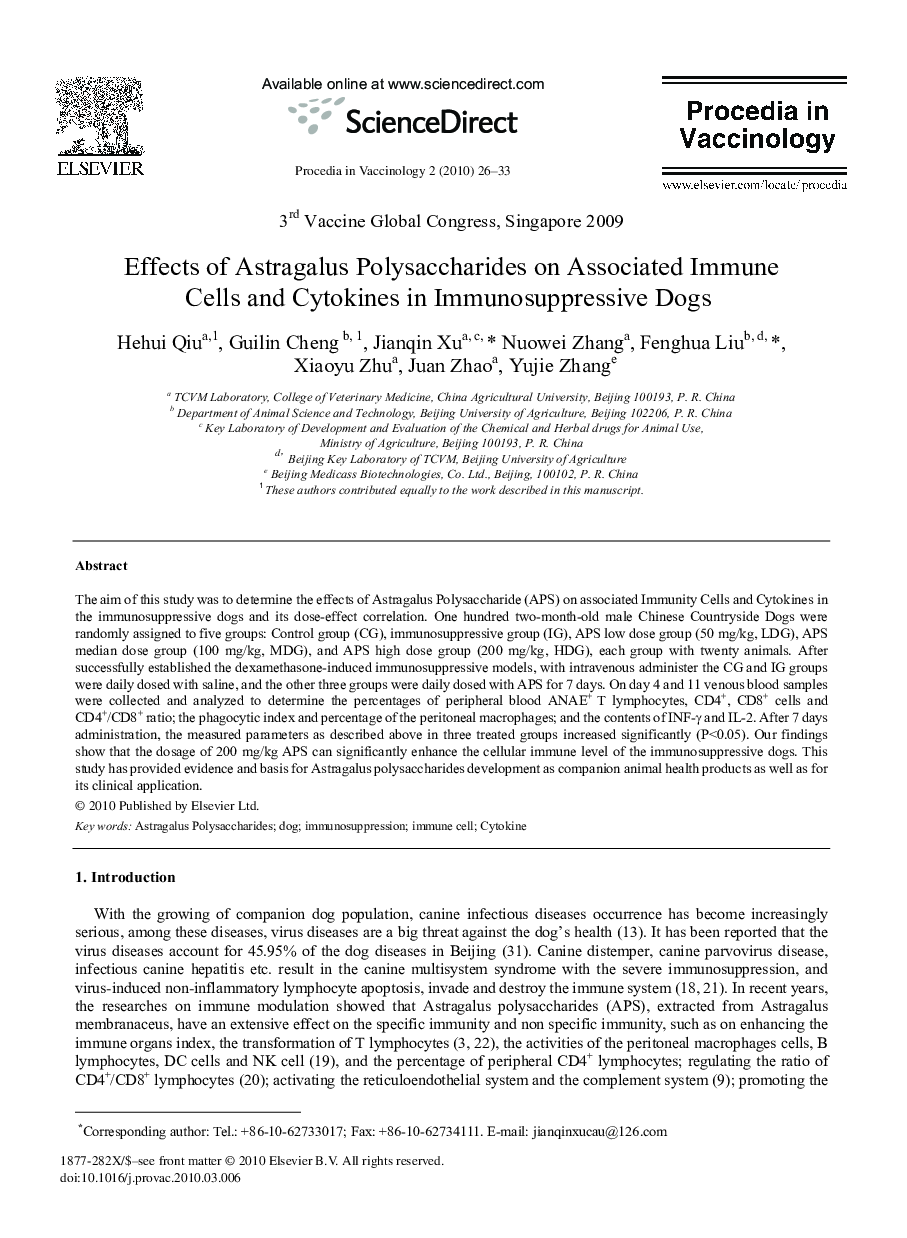| Article ID | Journal | Published Year | Pages | File Type |
|---|---|---|---|---|
| 2473798 | Procedia in Vaccinology | 2010 | 8 Pages |
The aim of this study was to determine the effects of Astragalus Polysaccharide (APS) on associated Immunity Cells and Cytokines in the immunosuppressive dogs and its dose-effect correlation. One hundred two-month-old male Chinese Countryside Dogs were randomly assigned to five groups: Control group (CG), immunosuppressive group (IG), APS low dose group (50 mg/kg, LDG), APS median dose group (100 mg/kg, MDG), and APS high dose group (200 mg/kg, HDG), each group with twenty animals. After successfully established the dexamethasone-induced immunosuppressive models, with intravenous administer the CG and IG groups were daily dosed with saline, and the other three groups were daily dosed with APS for 7 days. On day 4 and 11 venous blood samples were collected and analyzed to determine the percentages of peripheral blood ANAE+ T lymphocytes, CD4+, CD8+ cells and CD4+/CD8+ ratio; the phagocytic index and percentage of the peritoneal macrophages; and the contents of INF-γ and IL-2. After 7 days administration, the measured parameters as described above in three treated groups increased significantly (P<0.05). Our findings show that the dosage of 200 mg/kg APS can significantly enhance the cellular immune level of the immunosuppressive dogs. This study has provided evidence and basis for Astragalus polysaccharides development as companion animal health products as well as for its clinical application.
